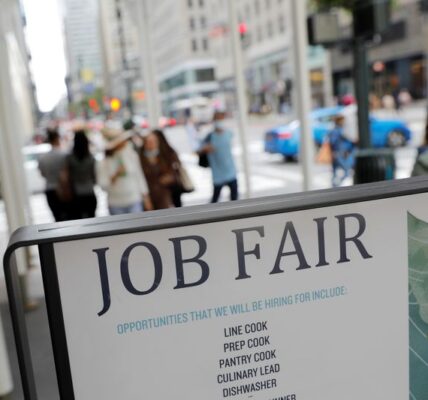JERUSALEM -The Bank of Israel left short-term interest rates unchanged for an 11th straight meeting on Monday, saying high inflation remains the chief concern while economic activity continues to recover moderately despite the war in Gaza.
The central bank kept its benchmark rate at 4.50%.
“In view of the continuing war, the Monetary Committee’s policy is focusing on stabilizing the markets and reducing uncertainty, alongside price stability and supporting economic activity,” it said.
It added the rates path would be based on “the convergence of inflation to its target, continued stability in the financial markets, economic activity, and fiscal policy”.
With taxes and electricity and water prices rising at the start of this year and airfares increasing last month as foreign airlines cancel flights to Tel Aviv, the annual inflation rate gained to 3.6% in April – above expectations of 3.1% – from 3.3% in March and remained above the government’s 1%-3% annual target.
“In the Committee’s assessment, there are several risks for a possible acceleration of inflation or for it not converging to the target range: geopolitical developments and their impact on economic activity, supply constraints, worsening global terms of trade, and volatility of the shekel,” the central bank said.
After the decision, Israel’s shekel was 1.1% stronger versus the dollar and is up 2.1% this month.
The Bank of Israel reduced the rate by 25 basis points in January 2024 after inflation eased and economic growth slowed amid the Gaza war, but has kept policy steady since and said it was in no rush to ease again while inflation remained above target.
Based on bond yields, financial markets still expect inflation to ease to 1.8% in the coming year, according to Bank of Israel data. They also expect two rate cuts later in 2025 as projected by the central bank’s own economists.
In keeping rates steady, the Bank of Israel also cited economic activity rebounding moderately and a tight labour market, which has started to moderate.
It mentioned the risk premium – as measured by the 5-year credit default swap price and by the spreads on dollar-denominated government bonds – had declined but remains above prewar levels.
The economy grew by an annualised 3.4% in the first quarter after a 1% expansion for all of 2024 due to the war.
All 14 analysts polled by Reuters had expected no rate move on Monday.
Please like, comment, and share this article if you found it helpful and
informative.
For more news check out Big Town Bulletin News
For more from Big Town Bulletin check out Big Town Bulletin


